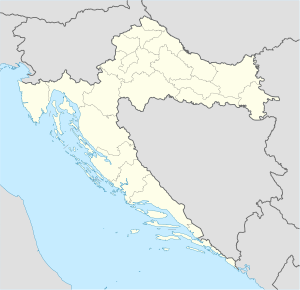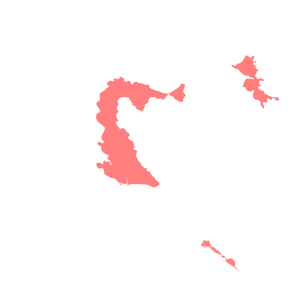| Operation Baranja | |||||||
|---|---|---|---|---|---|---|---|
| Part of the Croatian War of Independence | |||||||
Belišće and Osijek on the map of Croatia; JNA/RSK-held territories in April 1992 are highlighted in red. | |||||||
| |||||||
| Belligerents | |||||||
|
|
| ||||||
| Commanders and leaders | |||||||
|
| Unknown | ||||||
| Strength | |||||||
| 1,800 | Unknown | ||||||
| Casualties and losses | |||||||
|
15–16 killed 85 wounded |
c. 30 killed c. 30 captured | ||||||
Operation Baranja (Croatian: Operacija Baranja) was an aborted offensive of the Croatian Army (Hrvatska vojska – HV) north of the towns of Belišće and Valpovo, Croatia on 3 April 1992 during the Croatian War of Independence. The offensive quickly gained ground after the HV advanced north of the Drava River into Baranja. The defending force of the Croatian Serb Territorial Defence Force supported by the Yugoslav People's Army (Jugoslovenska Narodna Armija – JNA) artillery were caught unprepared and offered light resistance.
However, the offensive was not authorised and it was cancelled six hours after it had been launched. An investigation was launched by the HV, and two senior officers were relieved of their duty, before being reassigned to new positions. According to General Martin Špegelj, the decision to abort the offensive was wrong as it meant a missed opportunity to recapture Baranja which had been lost to the JNA in 1991. Admiral Davor Domazet-Lošo pointed out that the offensive presented a significant political problem to Croatian leadership as it meant that the political leaders of Croatia had poor control over its military, or that Croatia was violating its international obligations towards the United Nations (UN) in respect of the Vance plan at the time the country sought to become a member of the UN.
During the fighting, and in its aftermath, the JNA shelled several Croatian settlements and three Croatian civilians living in Croatian Serb-controlled Baranja were killed in retribution. The battle is commemorated annually in the towns of Belišće and Valpovo.

